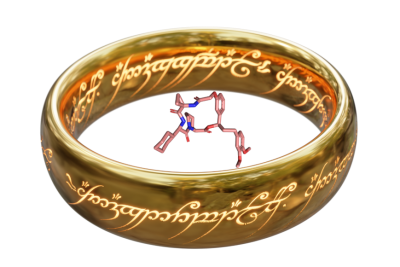News
LOEWE TRABITA Centre identifies bonding molecules that could enable therapeutic approaches to treat depression, obesity and chronic pain

Particular proteins, e.g. FKBP51, are risk factors that can trigger sicknesses like depression, obesity and chronic pain and could also be the cause of the side-effects when treating the sicknesses mentioned here.
A working group centred around Professor Felix Hausch, the spokesperson for the LOEWE TRABITA Centre at the Clemens Schöpf Institute for Organic Chemistry and Biochemistry at the Technical University of Darmstadt, has now succeeded in showing in two publications how molecular rings can make a crucial contribution to enabling a new approach to treating depression, obesity or chronic pain and preventing the side-effects that have occurred in this treatment in the past.
The findings related to molecular ring closure can also be used to develop active ingredients for use against COVID-19. For example, in another project where Professor Felix Hausch is involved, taking place at this time.

